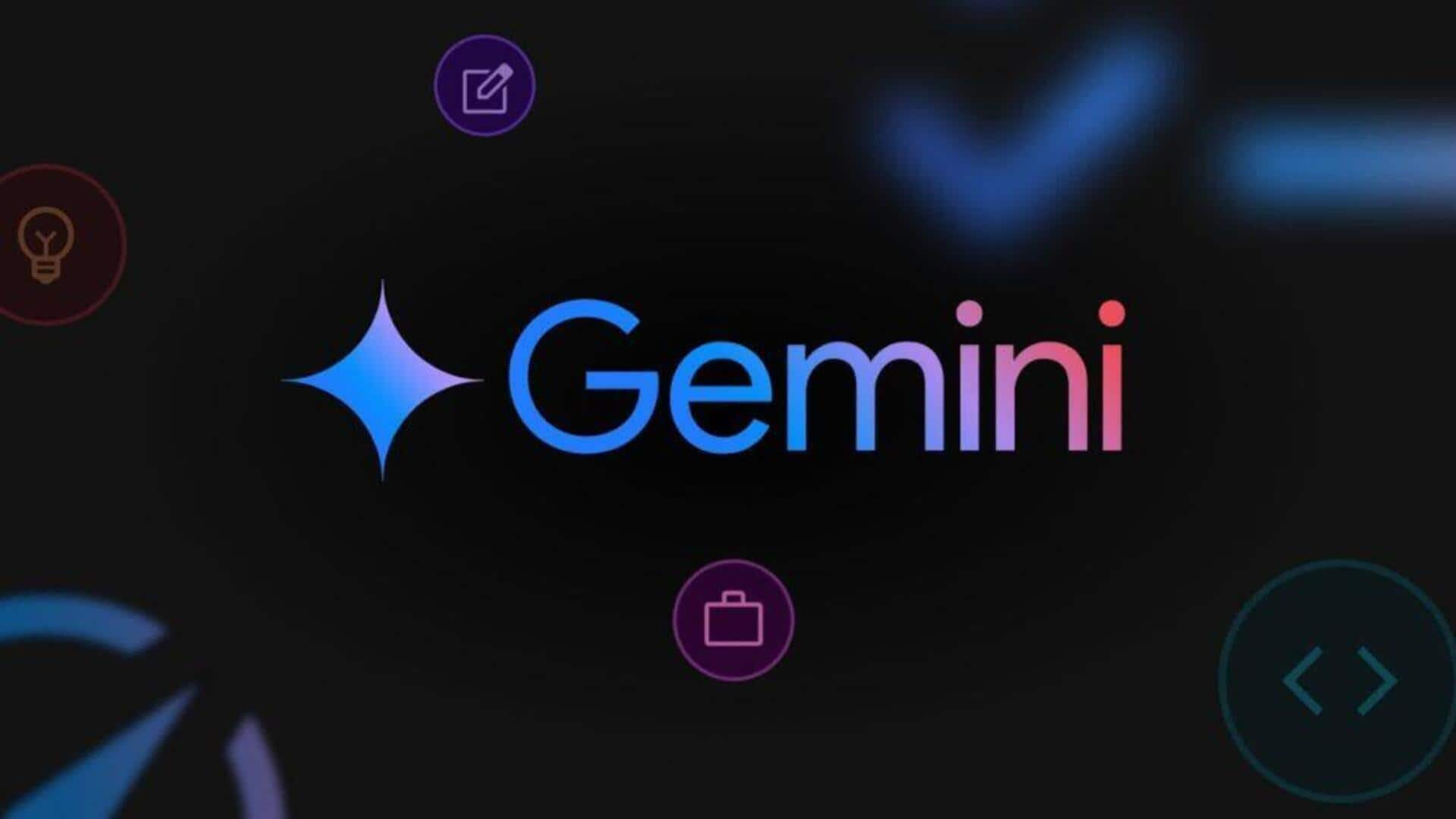
Google Gemini app gets 'Deep Think' AI reasoning model
What's the story
Google has launched a new AI reasoning model called 'Deep Think' in its Gemini app. The feature, which is currently only available for users with the Google AI Ultra subscription, uses advanced parallel thinking techniques to solve complex problems. The idea behind Deep Think is to provide more thoughtful, creative, and strategic responses from the Gemini app. In the coming weeks, Google plans to provide API access to trusted developers, further expanding the reach of this advanced AI reasoning model.
Enhanced functionality
Deep Think is based on Gemini 2.5
Deep Think is based on an upgraded version of Google's Gemini 2.5 model, a variation of which recently won a gold medal at the 2025 International Mathematical Olympiad (IMO). While the competition model took hours to solve complex math problems, Deep Think is optimized for everyday use with faster response times. It can handle tasks like complex coding, scientific reasoning, algorithm development, and creative design with more depth and accuracy.
User benefits
Potential applications in academia and development
Deep Think could be a game-changer for developers and researchers. Google has already shared the high-performance variant with select mathematicians and academics to test its potential in formulating mathematical conjectures and navigating dense scientific literature. The release also marks significant progress in reinforcement learning, enabling the AI to navigate extended reasoning paths more intuitively, especially in iterative workflows like web design, algorithm optimization, and code development.
Model evaluation
Focus on safety and ethical considerations
Deep Think has outperformed other models in challenging benchmarks like LiveCodeBench V6 and Humanity's Last Exam, without relying on external tools. Google has stressed that safety is a key focus in Gemini's development. While Deep Think showed improved content safety and objectivity compared to its predecessor, it was more cautious at times, refusing benign prompts. To mitigate risks associated with advanced reasoning capabilities, Google is conducting extensive "frontier safety evaluations."